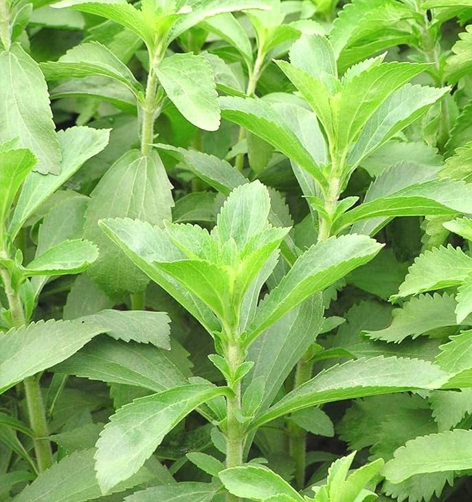
Stevia, a natural sweetener derived from the leaves of the Stevia rebaudiana plant, is a popular alternative to sugar. Known for its zero-calorie sweetness, Stevia is up to 300 times sweeter than sugar and is widely used in foods and beverages.
Stevia contains compounds called steviol glycosides, which are responsible for its sweetness and have been extensively studied for their safety and potential health benefits.
Health Benefits of Stevia:
- Helps in weight management as it contains no calories
- Does not raise blood sugar levels, making it safe for diabetics
- Has potential antioxidant properties
- May lower blood pressure in some individuals
Stevia has been widely adopted in the food and health industries as a healthier alternative to sugar. It is available in various forms including powder, liquid, and leaves, and can be used in cooking, baking, and beverages.
Cultivation of Stevia:
Stevia is primarily cultivated in tropical and subtropical regions and thrives in well-drained, fertile soils. It requires moderate rainfall and grows well in both open fields and controlled environments such as greenhouses.
India has been increasingly adopting Stevia cultivation due to its rising demand in the global market. The plant can be harvested multiple times a year, with the leaves being the primary part used for sweetening purposes.
Marketing and Demand:
The demand for Stevia continues to grow as more consumers seek healthier alternatives to sugar. It is widely used in the production of low-calorie foods, beverages, and health products, making it a valuable crop for farmers and producers.
